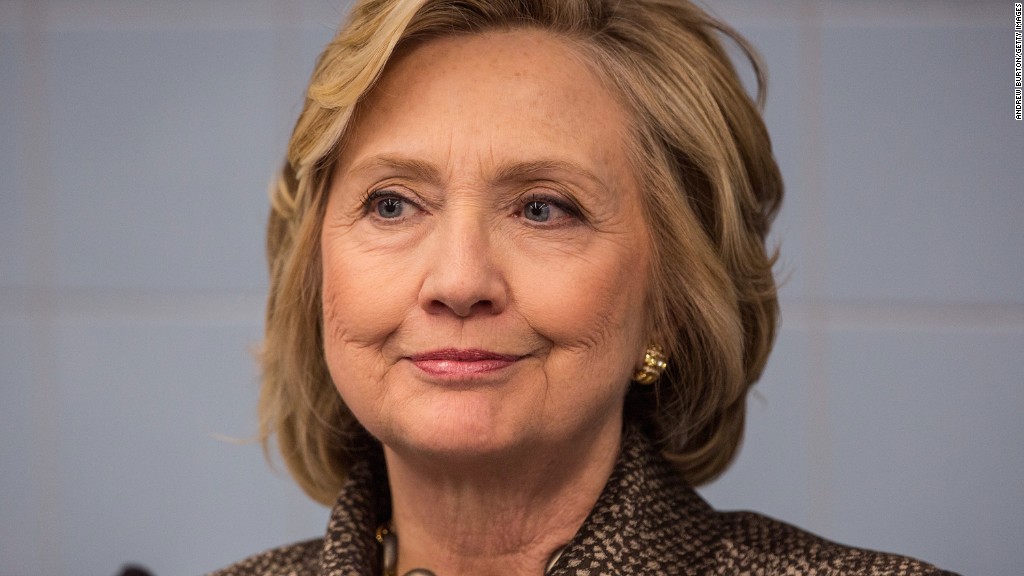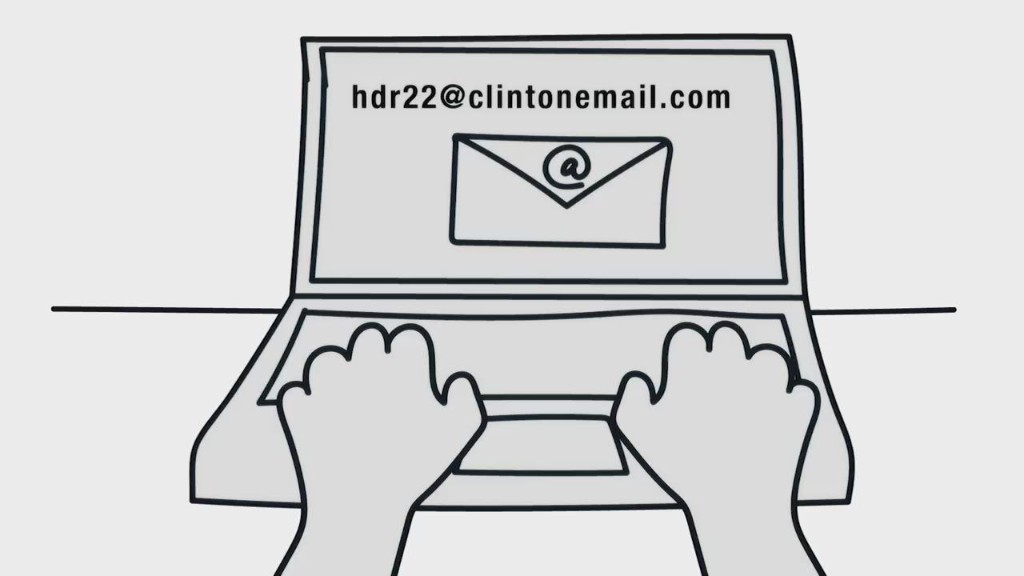
In the world of website domains, Hillary Clinton's name is prime real estate.
The likely Democratic presidential hopeful already claims one: HillaryClinton.com. That's owned by Friends of Hillary, the campaign committee created for her U.S. Senate runs in 2000 and 2006. And she used it when she ran for president in 2008. Today, HillaryClinton.com's homepage gives no inkling that another campaign is afoot, but that's expected to change soon.
Now that it's virtually certain Clinton's going to make a bid for the White House next year, owners of "official sounding" Clinton domain names have dollar signs in their eyes.
ElectHillary.com is on the market for a whopping $295,000. USAHillary.com is selling for $99,999. And the minimum bid on VoteHillary.com is $50,000.
Even ReElectHillary.com is going for $275,000 (a little presumptuous, isn't it?).
The domains are on the auction block at Go Daddy (GDDY), the popular web hosting company. The high prices, which are set by the domain owners, aren't drawing much interest yet. None has a single bid.
Some of the highest-priced domains are anti-Clinton.
HillaryNotPresident.com is tied for first place at $295,000. At $50,000 apiece there's WomenAgainstHillary.com and WomenAgainstHillary.org.
Why does it matter who owns a site? Consider HillaryForPresident.com. It's been snapped up by a conservative dental surgeon in Boca Raton, Florida, who uses it to rail against Democrats and Obamacare.
So, who owns this stuff?
CNNMoney tracked down the owner of the most expensive "Hillary" domains: It's Janet LaCelle, a 66-year-old retired factory worker who used to build weaponized missiles at the General Electric plant in Syracuse, New York.
She bought the domains ElectHillary.com, ReElectHillary.com and HillaryNotPresident.com more than a decade ago for just $15 a pop. And each year LaCelle renews them -- if she remembers. She forgot to pay her fee for PresidentHillaryClinton.com and still kicks herself for it.
"I lost a good one," she sighed.
LaCelle didn't sell any of her Clinton domain collection during the 2008 presidential primary when Clinton faced off against Barack Obama (and blames herself for not more aggressively marketing them). But she still dreams of turning a $45 investment into $865,000. And LaCelle doesn't care who she sells to -- Clinton supporters or detractors -- as long as she makes money.
"It has nothing to do with caring really who's going to be president," she said. "I would sell it to either or. It's just a domain name."
That said, LaCelle is a registered Republican who said she plans to vote for Clinton if she runs for president.
And the others?
There's a healthy market on the Republican side, too. PresidentChrisChristie.com and ChrisChristiePresident2016.com are up for grabs at about $49,000 a piece.
Rand Paul was smart to buy RandPaul.com and RandPaul2016 already; other similarly-named domains are dirt cheap.
At least Clinton owns the most basic version of her name. Jeb Bush never bought JebBush.com, which now goes for $250,000. It's registered to the domain name service Fabulous.com.
And too bad for New Jersey Governor Christie, a possible GOP presidential candidate. A computer programmer in Milwaukee, Wisconsin, named Chris Christie grabbed ChrisChristie.com first.
This name-claiming phenomenon is thanks to enterprising online speculators known as "domain squatters." It's been a common practice since the early days of the Web. As the Internet was taking off in the 1990s, some forward-thinking folks bought website names that they hoped would eventually become popular.
It's like real estate in the digital realm. And it usually backfires.
Powerful companies with popular trademarks -- think Apple (AAPL), Coca-Cola (COKE) -- regularly send these speculators "cease and desist" letters to scare them into giving up the domains referencing the products' names. It got so bad that Congress passed the Anticybersquatting Consumer Protection Act in 1999.
The most famous case involved the "White House" domain. WhiteHouse.gov has always been the official government website. However, for years, unsuspecting grade school students working on research projects would often first try WhiteHouse.com, which directed them to porn instead.
Nowadays, the once-XXX website just shows a photo of the White House.


